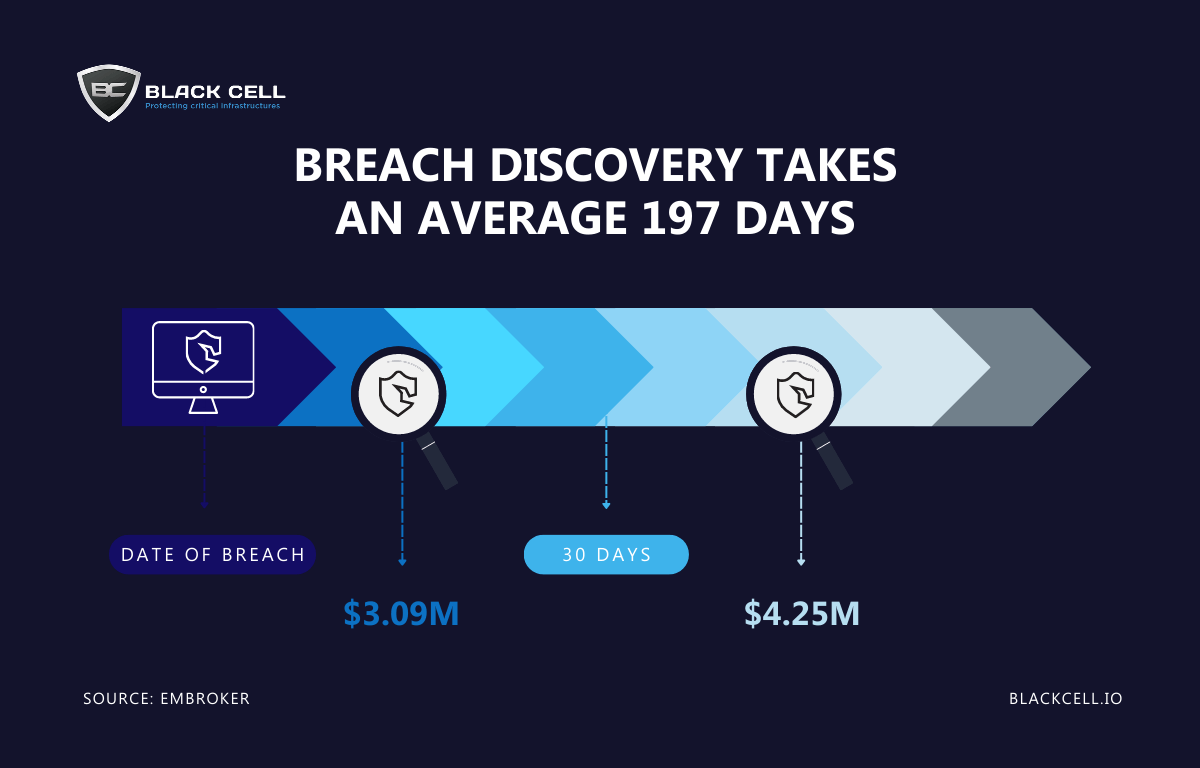In today’s digitized landscape, the term “data breach” has become a concerning buzzword for businesses of all sizes. Breach discovery, the crucial moment when a company becomes aware of an incident, sets the stage for subsequent actions. According to insights from IBM, this phase is a race against time, with companies taking an average of 197 days to detect the breach and an additional 69 days to successfully contain it.
Intriguingly, the clock isn’t just ticking—it’s also influencing the bottom line. Companies that managed to contain a breach within the impressive timeframe of less than 30 days reaped substantial benefits. In fact, these swift responders saved more than a staggering $1 million compared to counterparts that exceeded the 30-day threshold.
The Ripple Effect of Delayed Response
Delving deeper, it’s evident that a sluggish response to a data breach can lead to more than just financial woes. The consequences of delayed action can be far-reaching, impacting core facets of your business. The aftermath may include a erosion of customer trust, plummeting productivity levels, and the ominous specter of substantial fines.
Equipping Your Business: The Power of a Data Breach Response Plan
In the realm of cybersecurity, preparation is akin to armor. A robust data breach response plan is your proactive strategy to ensure that, in the event of a breach, your company is primed to navigate the storm.
Central to this preparedness is risk management. By having a well-defined strategy in place, you can significantly mitigate the potential impact on both your company’s reputation and financial stability. An incident response plan stands as a pillar of this strategy, offering a comprehensive roadmap for your team through each critical phase: detection, containment, investigation, remediation, and recovery.
In conclusion, the discovery and containment of a data breach are pivotal junctures that demand immediate and calculated action. The clock is ticking, but so are the potential rewards for swift and effective response. Implementing a data breach response plan isn’t just a best practice—it’s a proactive measure that can safeguard your business against the multifaceted consequences of a breach. By doing so, you’re not only protecting sensitive data, but also fortifying the pillars upon which your business stands.

Source: Embroker
Author

Péter Szöllősi
OFFENSIVE SECURITY MANAGER
Related Posts
Top 4 Cyber Threats Security Leaders Feel Least Prepared For
Even the most experienced security leaders admit they’re not fully ready for every threat lurking...
Global Growth of Cybercrime
In today’s hyper-connected world, cybercrime is no longer a distant threat - it’s a looming...




